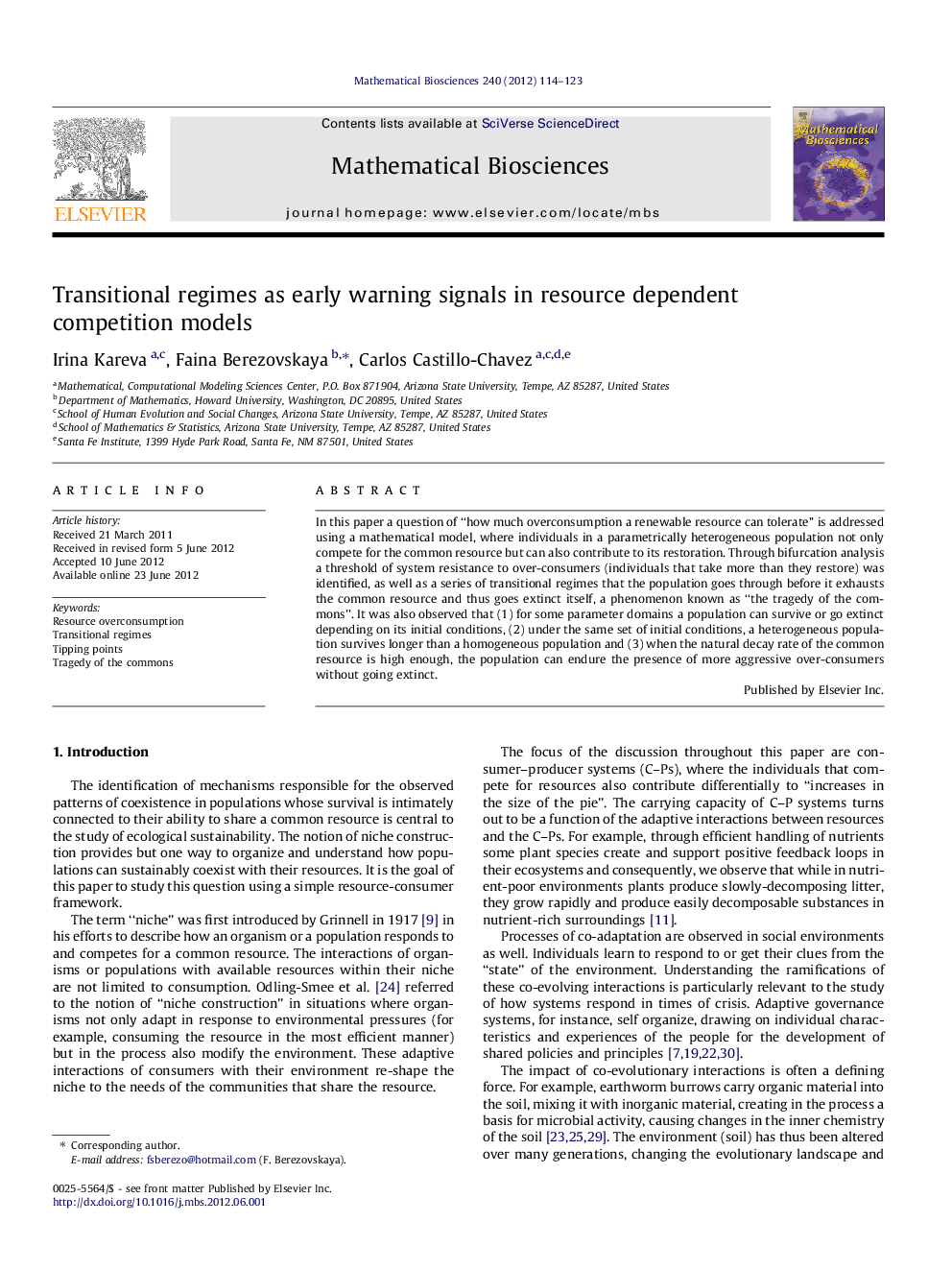| Article ID | Journal | Published Year | Pages | File Type |
|---|---|---|---|---|
| 4500237 | Mathematical Biosciences | 2012 | 10 Pages |
In this paper a question of “how much overconsumption a renewable resource can tolerate” is addressed using a mathematical model, where individuals in a parametrically heterogeneous population not only compete for the common resource but can also contribute to its restoration. Through bifurcation analysis a threshold of system resistance to over-consumers (individuals that take more than they restore) was identified, as well as a series of transitional regimes that the population goes through before it exhausts the common resource and thus goes extinct itself, a phenomenon known as “the tragedy of the commons”. It was also observed that (1) for some parameter domains a population can survive or go extinct depending on its initial conditions, (2) under the same set of initial conditions, a heterogeneous population survives longer than a homogeneous population and (3) when the natural decay rate of the common resource is high enough, the population can endure the presence of more aggressive over-consumers without going extinct.
► Over-consumption of a common resource can lead to the tragedy of the commons. ► We model interactions between a population of consumers and the shared resource. ► Bifurcation analysis reveals a series of transitional regimes preceding system collapse. ► Predicted regimes are in accordance with previously published observations. ► Transitional regimes can be used as early warning signals.
